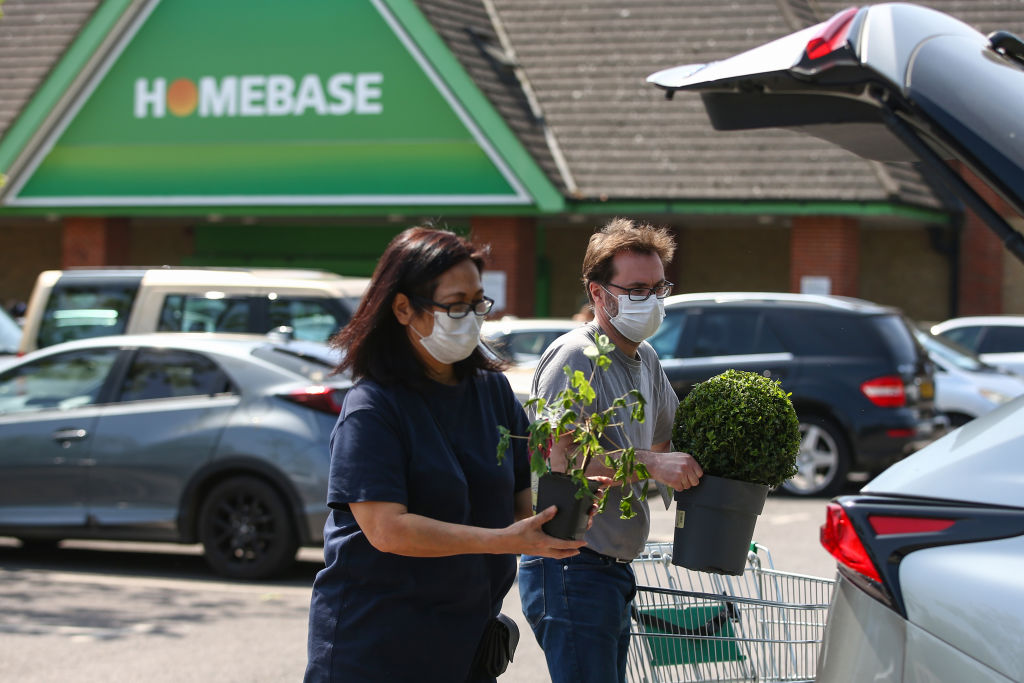Lockdown blues: Breakups and divorces support UK house prices

The property market is currently defying gravity, with asking prices hitting an all-time high in July and spirits buoyant after the chancellor slashed the stamp duty homes tax.
But estate agents say a less-publicised factor has been helping the property sector ride out economic turbulence better than most had predicted: A surge in lockdown breakups and divorces.
Divorce enquiries have jumped by around 40 per cent since the start of the UK’s coronavirus lockdown, Co-op Legal Services said in June. And as people break up and move out, they look for a new place to live.
“We are seeing a spike without a shadow of a doubt, and we’re starting to see that boost of stock come through,” says James Forrester, managing director of Barrows & Forrester estate agents in Birmingham.
“It’s just unfortunate we’re seeing the boost from people deciding they no longer want to be together.”
UK house prices helped after lockdown eased
The property market was frozen when Britain went into lockdown in March. In April and May, property sales were an enormous 50 per cent down year on year, HMRC data shows.
But viewings and moves were once again allowed in mid-May. And since then there has been a “mini boom” in the market, agents say.
Although UK house prices fell in June according to Nationwide and Halifax, the average asking price of property coming to market this month was up 2.4 per cent compared to March, property platform Rightmove said yesterday. And buyer enquiries were up 75 per cent year on year.
Agents say the market has been supported by pent-up demand. The coronavirus pandemic has also caused people to reconsider their living situations.
North London estate agent Jeremy Leaf says breakups and divorces have driven activity in the rentals market in particular. “It’s easier to flip in and out of a property,” he says.
Lucy Pendleton, property expert at estate agent James Pendleton, agrees. She says the lettings market is “the one that you’re seeing the reaction from straight away”. Rightmove says asking rents outside London hit a record high in June. London rents slipped 0.6 per cent year on year, however.
Breakups support both sales and rentals
But Jonathan Hopper, chief executive of Garrington Property Finders, says it is also helping UK house prices. “It’s a real thing in the market and it is driving supply,” he says.
“Sadly I think some people have reevaluated what they want from life and I think it has been the catalyst for some people.”
Hopper says sales put on hold last year due to Brexit are also helping the market. And he adds people want to act fast because they “see dark clouds circling on the horizon later this year”.
Yet he says it’s sometimes an uncomfortable situation: “As an estate agent it’s great to get valuations and new listings but it’s not nice obviously seeing what it’s for.”

Buyers demand more space amid pandemic
Cheerier events have also driven property market activity, however. Alex and her partner Dave (who asked for their surnames not to be used) decided to move to London together after enjoying their time in lockdown with each other.
“We’re hearing so much doom and gloom about people breaking up but for us it’s been the absolute opposite,” Alex says. “We just got on even better.”
She says it was an odd experience, however. “We were able to visit and have a look round, but obviously fully masked and gloved up.”
Alex says it was crucial they got a place with a garden in case “we have a second lockdown”.
Estate agents up and down the country have been seeing similar demands for outdoor space. Forrester says: “Gardens are now number one on the requirements for semi-detached and obviously detached homes.”
Yet Pendleton is slightly skeptical, saying people always want gardens in the summer. “If the sun is shining and you can smell a barbecue you don’t want to be in a third-floor flat, do you?”
Will UK house prices tumble?
The big question is whether the property market can keep beating the odds as the UK economy limps through the coronavirus pandemic. Chancellor Rishi Sunak this month unveiled a stamp duty “holiday” to try to juice the sector, raising the payment threshold to £500,000 from £125,000.
But by Nationwide’s indicator, UK house prices fell 0.1 per cent year on year in June in the first annual decline since 2012. And Rightmove’s property index suggests the London market is depressed.
Richard Donnell, research director at property website Zoopla, says that “London is lagging behind” as cities lose their allure during the coronavirus lockdown. “Some people are seeing the opportunity of ‘maybe I can work more remotely’,” he says.
Forrester says he was expecting the market to “plateau out” over the coming months. But he thinks the stamp duty cut has improved the outlook: “We are going to see a boom straight away.”
“I think we will see property prices increase especially outside of London, because of the areas where property values fall up to the £500,000 mark.”
Some analysts are more skeptical, citing a likely wave of unemployment when the government’s furlough scheme ends.
Hopper says it is simply too difficult to predict. “National data should be taken with a healthy pinch of salt at the moment,” he says.
“There’s some markets that are performing exceptionally well [but] there are other markets that are really starting to feel the economic headwinds coming.”